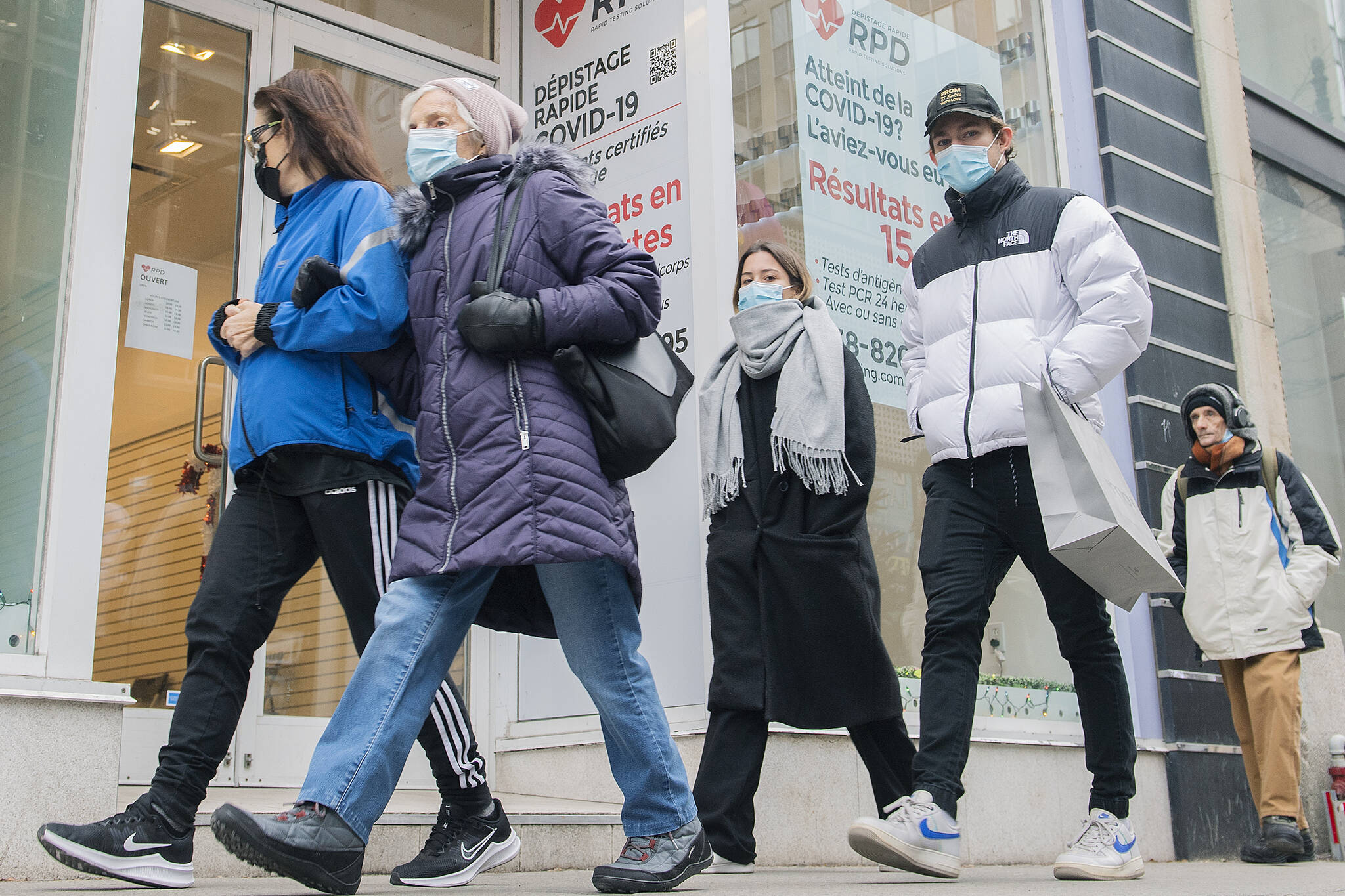The federal government plans to spend another $1.7 billion to almost triple Canada’s shipments of rapid tests for COVID-19 before the end of March.
Finance Minister Chrystia Freeland’s fall economic statement released Tuesday is heavily laden with warnings that the Omicron variant has thrown a disheartening wrench into Canada’s pandemic recovery hopes.
“As Omicron has reminded us, COVID-19 threatens us still,” Freeland said in the introduction to the fiscal update.
Canada’s COVID-19 scenario appeared to be levelling in November, but things have started to turn badly again with the arrival of the new variant.
There is still much to be learned about how severe Omicron will be, but most experts now agree it is the most transmissible version yet of the novel coronavirus that causes COVID-19.
It was only identified as a variant in late November but in Ontario alone it already makes up 10 per cent of all new sequenced cases of COVID-19.
Canada recorded more than 29,000 new cases of COVID-19 in the last week, up from 22,000 the week before.
The fiscal update shows Omicron has the federal government preparing to have to support businesses and workers in the event of new lockdowns and other public health restrictions, but also planning to spend billions more to test, treat and vaccinate Canadians in the coming months.
The update includes $4.5 billion in the current fiscal year for what it calls “short-term cost pressures” of the Omicron variant, including the possibility of new supports needed during lockdowns, more border testing and any other needed help on the health response.
Freeland is promising that every Canadian who wants a booster shot can get one, and that the supplies are available to do that.
There is no new money in the budget for booster shots, but Canada previously signed agreements with both Pfizer and Moderna to get added booster doses, including any designed to target specific variants.
Federal and provincial data suggest there are more than 16 million doses of adult vaccine still available to be used in Canada for booster shots, and more doses have been procured for 2022.
There is also the $1.7 billion to buy 171 million more rapid tests. A year ago, Canada budgeted $565 million to buy rapid tests and the federal government reports receiving 99 million tests to date.
But this plan comes as many provinces are under pressure to start using the tests they already have.
Public Services and Procurement Canada says of the 81 million tests delivered to provincial and territorial governments, only 15.5 million have been used.
Freeland is also proposing to spend $1 billion this year and next to buy new COVID-19 therapeutics drugs, and about $350 million to help schools, community buildings and small businesses improve ventilation.
That includes a new refundable tax credit so small businesses can claim up to $10,000 per project, to purchase, install, upgrade or convert mechanical heating, ventilation and air conditioning systems, or to buy high efficiency air filtration units.
There is $37 million over three years, starting now, to help Transport Canada enforce vaccine mandates for air, rail and marine employees and passengers, and $300 million for provinces to continue with proof-of-vaccination systems.
The update says the federal vaccine mandate now in place for federal public servants, will be extended to other federally regulated workplaces early next year. That includes banks, post offices, and interprovincial transportation.
—Mia Rabson, The Canadian Press
RELATED: Fiscal update has deficit lower than expected but COVID-19 spending still dominates

